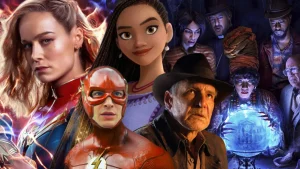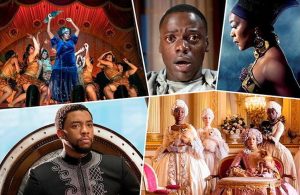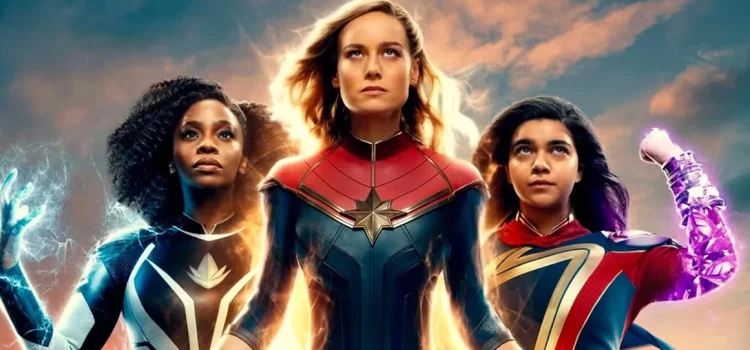
Introduction
In today’s world, diversity in entertainment is not only a reflection of society but also a driver of change. Audiences are increasingly demanding content that represents their diverse experiences, and the entertainment industry is beginning to respond. From film and television to music and gaming, diversity is shaping the way stories are told and consumed, making the industry more inclusive and relatable. This article explores why diversity in entertainment matters, its current state, and the future it holds.
Understanding Diversity in Entertainment

Diversity in entertainment refers to the representation of different groups in films, television, theater, and other media. This includes factors such as race, ethnicity, gender, sexual orientation, age, and ability. A diverse entertainment landscape reflects the real world and provides a platform for underrepresented voices. It allows audiences to see themselves in stories, which can lead to greater empathy and understanding among different cultures.
The Impact of Diverse Representation

Research shows that diverse representation in entertainment can have a profound impact on audiences. When people see characters who look like them or share their experiences, it can foster a sense of belonging and validation. This is especially important for children, who are still forming their identities and understanding their place in the world.
Additionally, diverse storytelling can challenge stereotypes and broaden perspectives. By showcasing varied experiences and viewpoints, entertainment can educate audiences about different cultures and lifestyles, promoting tolerance and acceptance.
Why Diversity in Entertainment Matters

Diversity in entertainment is essential for several reasons. First, it allows for more authentic storytelling. When diverse voices are included in the creative process, stories become richer and more relatable to a broader audience. It enables people from different backgrounds, cultures, and experiences to see themselves represented in media, which can have a positive impact on self-perception and societal understanding.
Moreover, entertainment has a powerful influence on shaping public opinion and culture. By including a variety of perspectives, entertainment can challenge stereotypes and break down barriers. It promotes understanding and empathy, fostering a more inclusive society. In a globalized world, diversity is not just a moral imperative but also a commercial one—audiences want to see themselves reflected on screen.
Current State of Diversity in Entertainment

While progress has been made in increasing diversity, there is still a long way to go. In recent years, there has been a push for more representation of women, people of color, LGBTQ+ individuals, and people with disabilities in the entertainment industry. This has led to the success of shows and films that feature diverse casts and crews, such as Black Panther, Crazy Rich Asians, and Pose. These productions not only resonated with diverse audiences but also achieved critical and commercial success, proving that diversity can be profitable.
However, many parts of the industry still lack inclusivity. Behind the scenes, diversity among writers, directors, and producers remains lower than ideal. There are still gaps in representation for certain communities, such as people with disabilities or those from non-Western cultures. Even when diversity is present, it is often tokenistic or stereotypical, failing to provide deep, meaningful representation.
Challenges to Increasing Diversity in Entertainment

One of the main challenges in increasing diversity in entertainment is the industry’s historically exclusive nature. Traditionally, gatekeepers in entertainment have been from homogenous backgrounds, leading to a narrow range of stories being told. Breaking into the industry remains difficult for people from underrepresented groups, as they often face systemic barriers like limited access to resources, networks, and opportunities.
Another issue is the fear of financial risk. Studios and networks may shy away from projects with diverse casts, believing they won’t appeal to mainstream audiences. However, this belief has been proven wrong repeatedly as diverse content continues to break box-office records and dominate streaming platforms.
There is also the challenge of balancing authenticity with broad appeal. While creators want to tell authentic stories, there is often pressure to dilute diversity to make it palatable to wider audiences. This can lead to misrepresentation or the watering down of unique cultural elements in entertainment.
The Benefits of Embracing Diversity in Entertainment

Despite the challenges, the benefits of diversity in entertainment are undeniable. For one, it can lead to greater creative innovation. By including diverse perspectives, creators can break out of conventional storytelling molds, exploring new genres, narratives, and character arcs. This leads to fresher, more engaging content.
Diversity in entertainment also helps bridge cultural divides. When audiences see diverse characters and stories, it humanizes different experiences and fosters empathy. This can lead to greater social cohesion and a better understanding of marginalized communities.
Furthermore, diversity in entertainment can unlock new markets. Content that appeals to global audiences allows studios to tap into international markets, expanding their reach and profitability. Movies like Parasite and Squid Game have proven that non-Western stories can resonate with global audiences, highlighting the universal appeal of good storytelling.
Challenges in Achieving Diversity

Despite the growing awareness of the importance of diversity, the entertainment industry still faces several challenges. Historically, many productions have favored homogenous casts and storylines, often sidelining stories from marginalized groups. This lack of representation can perpetuate stereotypes and limit the scope of storytelling.
Moreover, systemic barriers, such as funding and access to opportunities, continue to hinder diverse talent from entering the industry. Many filmmakers, writers, and actors from underrepresented backgrounds struggle to find support for their projects, which limits the range of stories told.
Moving Towards Inclusion

To address these challenges, the industry must take deliberate steps toward inclusivity. This includes hiring practices that prioritize diverse talent, both in front of and behind the camera. Studios and production companies should actively seek out stories from a variety of perspectives and provide platforms for underrepresented voices.
Initiatives like mentorship programs, workshops, and funding for diverse projects can also help bridge the gap. By investing in new talent and stories, the entertainment industry can create a more vibrant and inclusive landscape.
The Future of Diversity in Entertainment

Looking ahead, the push for diversity in entertainment is likely to continue growing. Streaming platforms are playing a key role in this transformation, as they offer a more democratic space for diverse content to thrive. With platforms like Netflix and Amazon Prime producing content that caters to global audiences, there is a broader range of voices being heard.
In addition, initiatives aimed at promoting diversity, such as diversity quotas and inclusive hiring practices, are helping to level the playing field. As younger generations who value inclusivity become more prominent in the entertainment workforce, we can expect more content that reflects the world’s rich diversity.
In the end, entertainment’s capacity to accept and celebrate diversity will determine its destiny. Audiences are no longer satisfied with narrow representations, and the demand for inclusive, diverse storytelling will only grow stronger.
Analysis Table
| Aspect | Current State | Challenges | Benefits |
|---|---|---|---|
| Representation | Improving but still lacking in areas | Systemic barriers and tokenism | Authentic storytelling, better audience engagement |
| Diverse Creators | Increasing but not yet widespread | Limited access to networks and resources | Creative innovation, new genres |
| Financial Viability | Proven profitable in many instances | Perception of risk by studios | Expanded markets, greater profitability |
| Audience Reception | Positive towards diverse content | Need to balance authenticity with broad appeal | Increased empathy, social cohesion |
Comparative Table
| Category | Diverse Representation | Non-Diverse Representation |
|---|---|---|
| Audience Reach | Appeals to global, diverse audiences | Limited appeal, often to homogenous groups |
| Storytelling | Rich, multifaceted stories | Conventional, repetitive narratives |
| Commercial Success | Often financially successful (Black Panther) | May struggle to resonate broadly (typical films) |
| Social Impact | Promotes empathy, breaks stereotypes | Can reinforce stereotypes and limit perspectives |
Conclusion
Diversity in entertainment is not just a trend; it is a vital component of a fair and inclusive society. By embracing diverse voices and stories, the entertainment industry can foster understanding, challenge stereotypes, and inspire future generations. While there are still challenges to overcome, the momentum for change is growing, and the benefits of a diverse entertainment landscape are clear.










